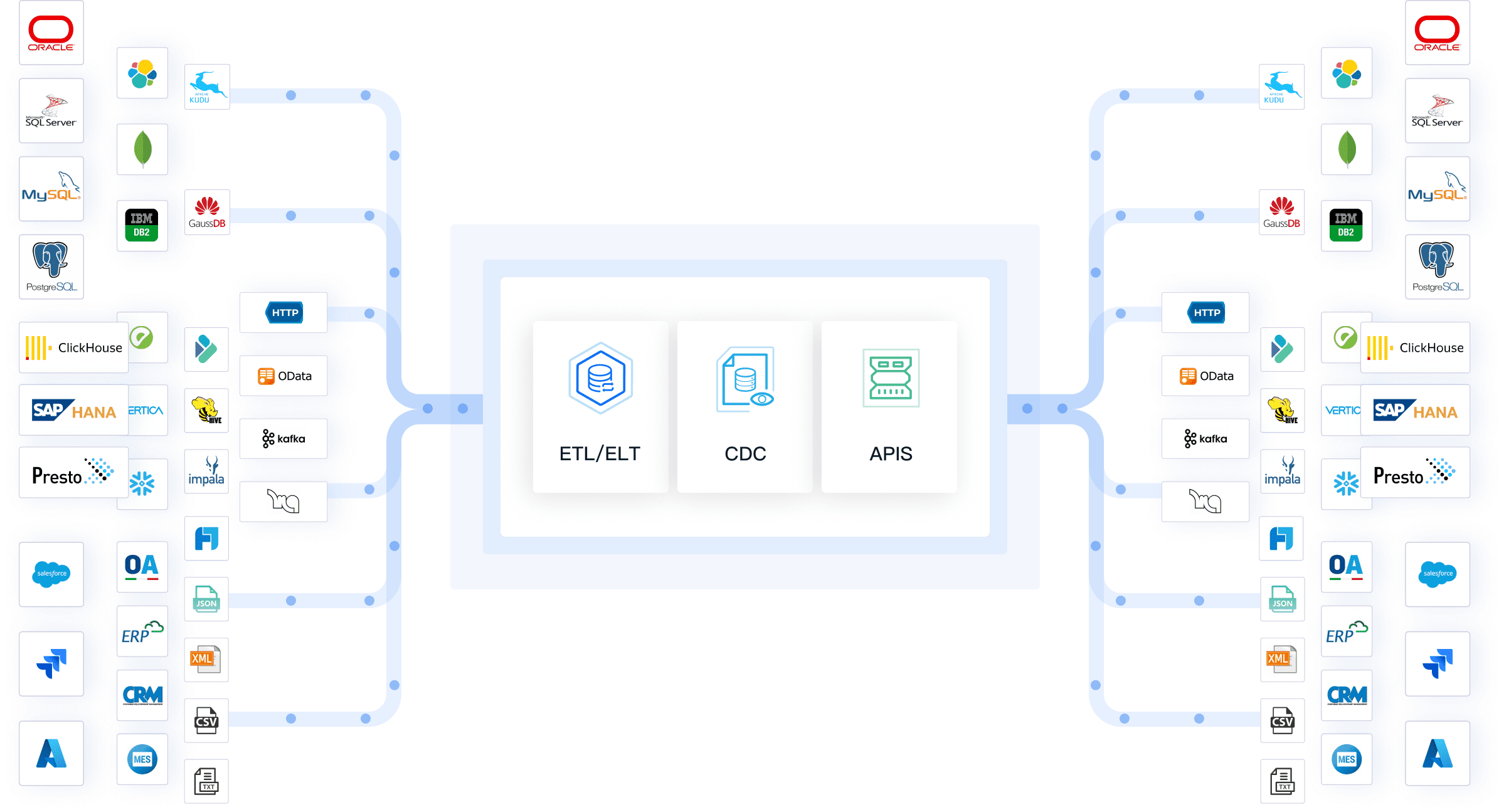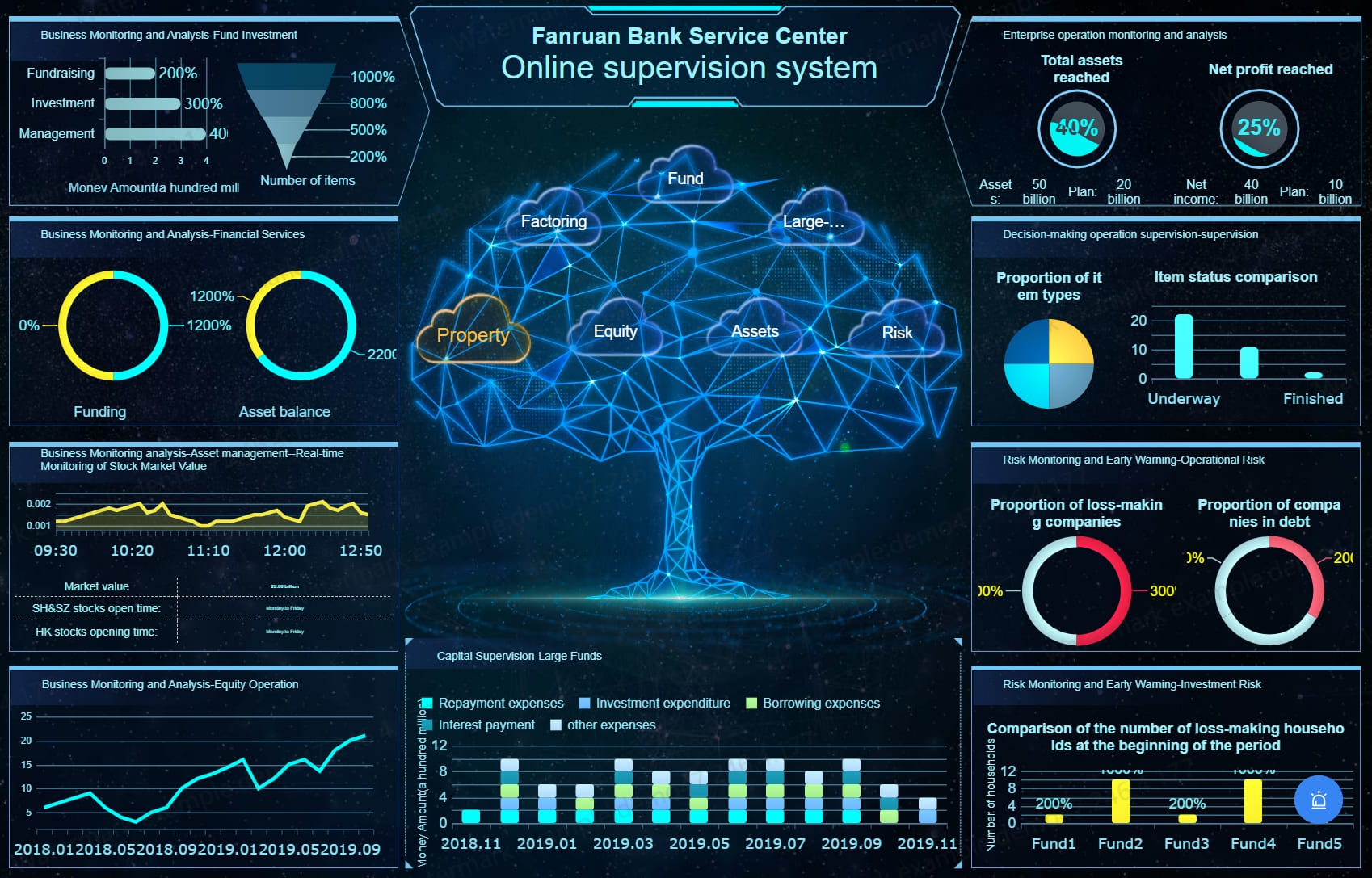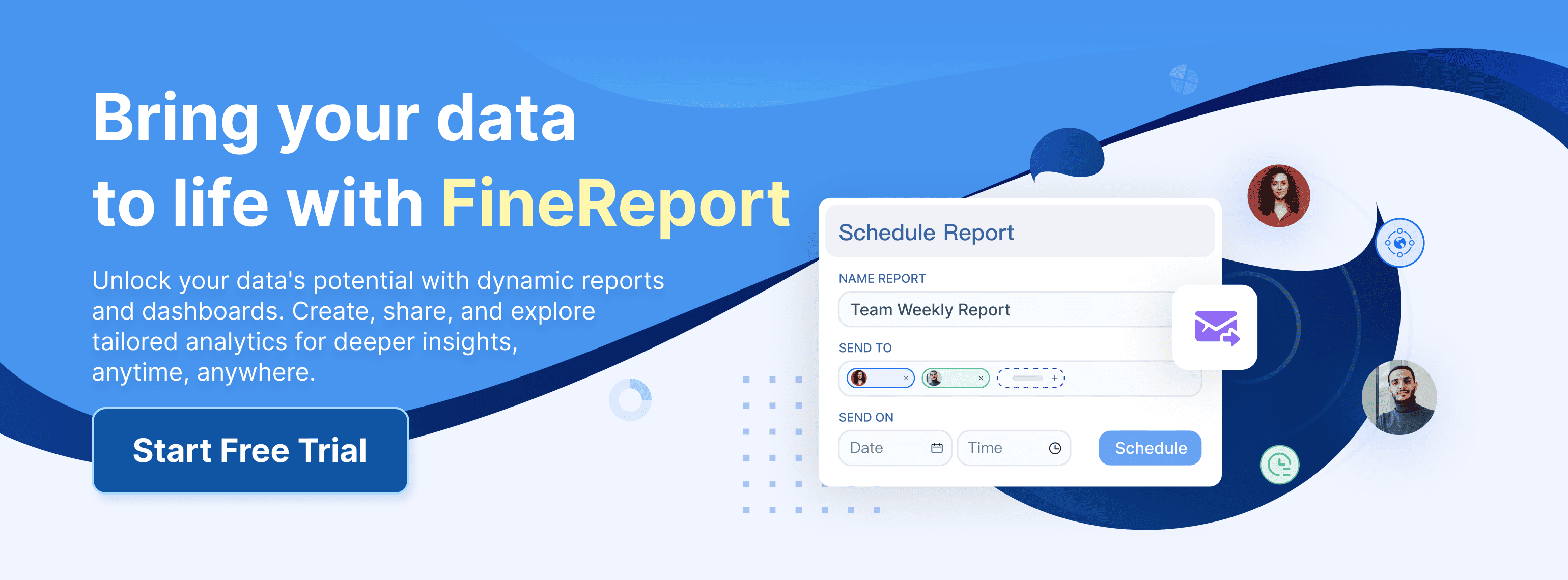

Data compliance stands as a cornerstone for organizational success in today's digital landscape. With 69% of countries enforcing data protection laws, businesses must adhere to key principles to safeguard sensitive information. These principles not only ensure legal compliance but also enhance trust and credibility. Tools like FineDataLink, FineReport, and FineBI play pivotal roles in streamlining data management and compliance processes. By understanding and implementing these principles, organizations can mitigate risks and capitalize on the significant business benefits that privacy and data protection offer.
Understanding Data Compliance
Definition and Importance of Data Compliance
What is Data Compliance?
Data compliance refers to the adherence to laws and regulations governing the collection, storage, and management of data. Organizations must follow these rules to protect sensitive information and maintain trust with stakeholders. Compliance ensures that businesses handle data responsibly, reducing the risk of breaches and legal penalties.
Why is Data Compliance Crucial for Businesses?
Businesses face increasing scrutiny over how they manage data. Compliance with data protection laws like the General Data Protection Regulation (GDPR) and the California Consumer Privacy Act (CCPA) is essential. These regulations grant individuals rights over their personal information, such as access, deletion, and refusal of data collection. By adhering to these laws, businesses not only avoid legal repercussions but also build credibility and trust with customers. Effective data compliance can lead to improved customer relationships and a competitive advantage in the market.
Common Challenges in Data Compliance
Navigating Complex Regulations
Organizations often struggle with the complexity of data protection laws. Each regulation, such as the Health Insurance Portability and Accountability Act (HIPAA), has specific requirements. For instance, HIPAA mandates that access to health records be restricted to valid reasons only. Similarly, the CCPA requires businesses to implement procedures to respond to consumer requests for data access and deletion. Navigating these intricate regulations demands a thorough understanding and constant vigilance to ensure compliance.
Ensuring Data Security and Privacy
Data security and privacy remain paramount concerns for businesses. Protecting personal data from unauthorized access, loss, or damage is crucial. Companies must implement robust security measures to safeguard information. This includes encryption, access controls, and regular audits. By prioritizing data security, organizations can prevent breaches and maintain compliance with regulations. Additionally, ensuring privacy fosters trust with consumers, who increasingly demand transparency and control over their personal information.
Key Principles of Data Compliance
Data Protection Principles
Lawfulness, Fairness, and Transparency
Data compliance hinges on the principles of lawfulness, fairness, and transparency. Organizations must process personal data in a manner that is legal and clear to individuals. This transparency builds trust between businesses and their customers. It ensures that individuals understand how their data is used and why it is collected. By adhering to these principles, companies can avoid legal pitfalls and foster a positive relationship with their clientele.
Data Minimization and Accuracy
Data minimization and accuracy are crucial components of data compliance. Organizations should collect only the data necessary for specific purposes. This approach reduces the risk of data breaches and protects sensitive information. Additionally, maintaining accurate data is vital. Companies must regularly update and correct data to ensure its reliability. This practice not only complies with regulations but also enhances decision-making processes within the organization.
Accountability and Governance
Establishing Clear Policies
Accountability in data compliance requires organizations to establish clear policies. These policies guide employees in handling data responsibly. They outline procedures for data collection, storage, and processing. By implementing comprehensive policies, businesses demonstrate their commitment to data protection. This proactive approach minimizes risks and ensures compliance with legal standards.
Regular Audits and Assessments
Regular audits and assessments play a pivotal role in maintaining data compliance. Organizations must routinely evaluate their data protection measures. These assessments identify potential vulnerabilities and areas for improvement. By conducting regular audits, companies can ensure that their data management practices align with current regulations. This ongoing vigilance helps prevent data breaches and reinforces the organization's commitment to safeguarding sensitive information.
Developing a Data Compliance Strategy
Creating a robust data compliance strategy involves several critical steps. Organizations must ensure that they not only comply with existing regulations but also anticipate future changes. This proactive approach helps in maintaining data integrity and security.
Steps to Create an Effective Strategy
Conducting a Data Audit
Conducting a data audit serves as the foundation of any compliance strategy. Organizations should begin by identifying all data sources and understanding the types of data they collect. This process involves cataloging data assets, assessing data flows, and identifying potential risks. By doing so, companies can pinpoint areas that require immediate attention and ensure that data handling aligns with regulatory requirements.
Implementing Data Protection Measures
Once the audit is complete, implementing data protection measures becomes essential. Organizations should establish robust security protocols to safeguard sensitive information. These measures include encryption, access controls, and regular security assessments. By prioritizing data protection, businesses can prevent unauthorized access and data breaches, thereby maintaining compliance with regulations.
Role of Technology in Compliance
Technology plays a pivotal role in streamlining compliance processes. It offers tools and solutions that simplify data management and enhance security.
Utilizing Compliance Software
Compliance software provides organizations with the tools needed to manage data effectively. These solutions automate data tracking, reporting, and monitoring, ensuring that businesses remain compliant with regulations. By utilizing compliance software, companies can reduce manual efforts and focus on strategic initiatives.
FineDataLink stands out as a comprehensive solution for automating compliance processes. This platform enables seamless data integration and real-time synchronization, enhancing data quality and accessibility. FineDataLink's low-code approach simplifies complex data tasks, allowing organizations to focus on compliance without getting bogged down by technical challenges. By leveraging FineDataLink, businesses can streamline their data workflows and ensure that compliance measures are consistently met.
Data Compliance with Laws and Regulations
Overview of Major Data Protection Laws
General Data Protection Regulation (GDPR)
The General Data Protection Regulation (GDPR) stands as a comprehensive data protection law in the European Union. It grants individuals significant rights over their personal data, ensuring that organizations process this data lawfully and transparently. GDPR mandates that businesses obtain explicit consent from individuals before collecting their data. It also requires organizations to provide individuals with access to their data and the ability to request its deletion. By adhering to GDPR, companies not only comply with legal standards but also build trust with their customers.
California Consumer Privacy Act (CCPA)
The California Consumer Privacy Act (CCPA) empowers California residents with rights over their personal information. It allows individuals to know what data companies collect about them and who it is shared with. Residents can request the deletion of their data and opt out of its sale. Businesses must respond to these requests and implement procedures to comply with CCPA. This law enhances consumer control over personal data and holds companies accountable for data protection.
Staying Updated with Regulatory Changes
Monitoring Legal Developments
Organizations must stay informed about changes in data protection laws. Regularly monitoring legal developments ensures that businesses remain compliant with evolving regulations. Companies should subscribe to legal updates and participate in industry forums to stay abreast of new requirements. By keeping up with legal changes, organizations can proactively adjust their data compliance strategies and avoid potential penalties.
Engaging with Compliance Experts
Engaging with compliance experts provides valuable insights into navigating complex regulations. These professionals offer guidance on implementing effective data protection measures and ensuring compliance with laws like GDPR and CCPA. By consulting with experts, businesses can identify potential risks and develop strategies to mitigate them. This collaboration enhances an organization's ability to maintain data compliance and protect sensitive information.
Current Trends in Data Compliance
Emerging Technologies and Compliance
Impact of AI and Machine Learning
Artificial Intelligence (AI) and Machine Learning (ML) have revolutionized data compliance. These technologies automate routine tasks, enhancing efficiency and accuracy. AI tools identify compliance risks and offer insights, reducing human error. According to a study by Accenture, 93% of organizations find AI and cloud compliance tools more effective than manual processes. AI-powered data screening tools detect sensitive information swiftly, mitigating privacy risks. However, implementing AI requires careful consideration of data protection and compliance with privacy regulations. Organizations must establish clear data privacy policies to ensure AI solutions align with compliance standards.
Blockchain and Data Security
Blockchain technology offers robust security features that enhance data compliance. Its decentralized nature ensures data integrity and transparency. Blockchain records transactions in a tamper-proof manner, making it ideal for maintaining accurate compliance records. This technology provides a secure framework for data sharing, reducing the risk of unauthorized access. By leveraging blockchain, organizations can enhance data security and streamline compliance processes. Blockchain's ability to provide an immutable audit trail supports accountability and governance in data management.
Globalization and Cross-Border Data Transfers
Challenges in International Compliance
Globalization presents challenges in data compliance, especially with cross-border data transfers. Different countries have varying data protection laws, complicating compliance efforts. Organizations must navigate these regulations to ensure data privacy and security. The General Data Protection Regulation (GDPR) and the California Consumer Privacy Act (CCPA) exemplify stringent data protection laws that businesses must adhere to. Compliance with these laws requires a thorough understanding of international regulations and the ability to adapt to changing legal landscapes.

Strategies for Global Data Management with FineReport and FineBI
FineReport and FineBI offer comprehensive solutions for managing global data compliance. FineReport enables organizations to create dynamic reports and dashboards, facilitating data analysis across borders. Its flexible report designer supports diverse visualization types, enhancing data interpretation. FineBI empowers users to connect and analyze data from various sources, providing insights for informed decision-making. These tools streamline data integration and ensure compliance with international regulations. By utilizing FineReport and FineBI, organizations can effectively manage cross-border data transfers and maintain compliance with global data protection laws.

Data compliance emerges as a vital component for safeguarding organizational data integrity, confidentiality, and availability. Key principles such as lawfulness, fairness, and transparency guide businesses in maintaining robust data protection measures. To ensure effective compliance, organizations should:
- Establish strong data protection policies: Implement procedures that align with relevant governance frameworks.
- Utilize compliance software: Enhance data management and safeguard sensitive information.
- Stay informed about regulatory changes: Regularly update strategies to adapt to evolving laws.
By prioritizing these strategies, businesses can foster a culture of accountability and trust, ensuring long-term success and consumer confidence.
FAQ
Data compliance involves adhering to laws and regulations that govern how organizations collect, store, and manage data. It ensures that businesses handle data responsibly, protecting sensitive information and maintaining trust with stakeholders.
Compliance with data protection laws like GDPR and CCPA is crucial. These regulations grant individuals rights over their personal information. By adhering to these laws, businesses avoid legal repercussions and build credibility and trust with customers.
The key principles include lawfulness, fairness, transparency, data minimization, accuracy, storage limitation, integrity, confidentiality, and accountability. These principles guide organizations in processing personal data responsibly.
Companies must implement robust security measures such as encryption, access controls, and regular audits. These practices protect personal data from unauthorized access, loss, or damage, ensuring compliance with regulations.
Technology streamlines compliance processes by offering tools that simplify data management and enhance security. Solutions like FineDataLink automate data integration and synchronization, ensuring compliance measures are consistently met.
Organizations should monitor legal developments and engage with compliance experts. Regular updates and expert guidance help businesses adjust their strategies to remain compliant with evolving regulations.
Compliance professionals often struggle with securing personnel and resources for compliance programs. Building proactive and robust programs requires continuous monitoring and assessment of compliance risks.
AI automates routine tasks, enhancing efficiency and accuracy in compliance processes. However, organizations must regularly monitor AI systems to ensure ongoing compliance with data protection regulations.
Proper training ensures employees understand compliance policies and use compliance software effectively. Regular education sessions raise awareness and help maintain compliance across the organization.
Tools like FineReport and FineBI facilitate global data management by enabling dynamic reporting and analysis. These solutions ensure compliance with international data protection laws, supporting effective cross-border data transfers.
Continue Reading About Data Compliance
Top 10 Data Integration Software for 2025
Explore the top 10 data integration software for 2025. Compare features, performance, and pricing to find the best tool for your business needs.
Howard
Jun 25, 2024
Mastering the Unity Cloud Dashboard for Effective Use
Master the Unity Cloud Dashboard to boost productivity with project management, build automation, and analytics. Explore integrations and advanced tips.
Lewis
Oct 26, 2024
10 Must-Have Marketing Agency Reporting Tools for Your Success
Optimize your agency's performance with top reporting tools. Explore analytics, social media, SEO, and more for data-driven decisions and efficiency.
Lewis
Oct 09, 2024
10 Game-Changing Project Management Reporting Types!
Unlock project success with 10 must-know reporting types! Track progress, manage risks, and stay on budget like a pro.
Lewis
Mar 03, 2025
15 Best Software Reporting Tools for 2025
Explore the top 15 software reporting tools for 2025. Compare features, pricing, and usability to find the best fit for your business needs.
Lewis
Oct 08, 2024
2025 Best Data Integration Solutions and Selection Guide
Explore top data integration solutions for 2025, enhancing data management and operational efficiency with leading platforms like Fivetran and Talend.
Howard
Dec 19, 2024



